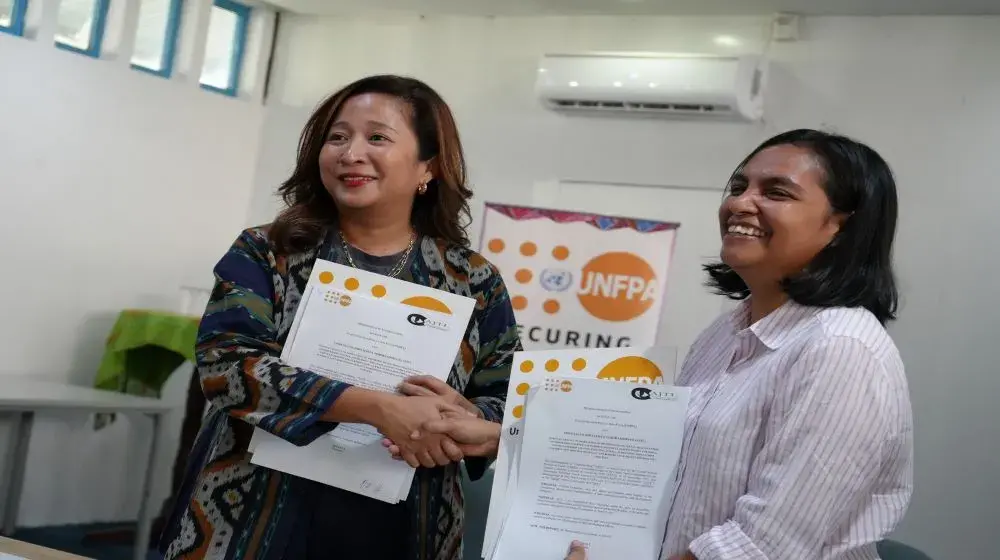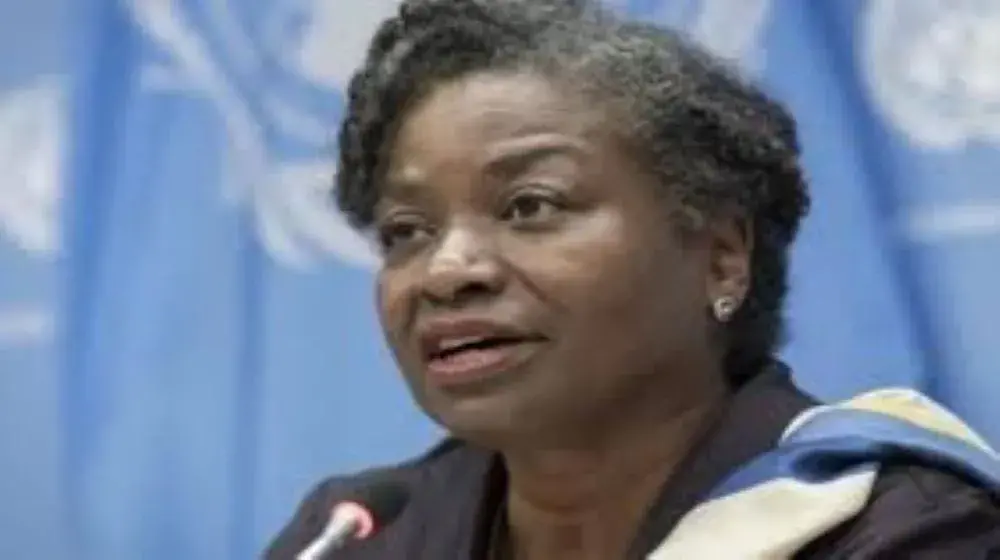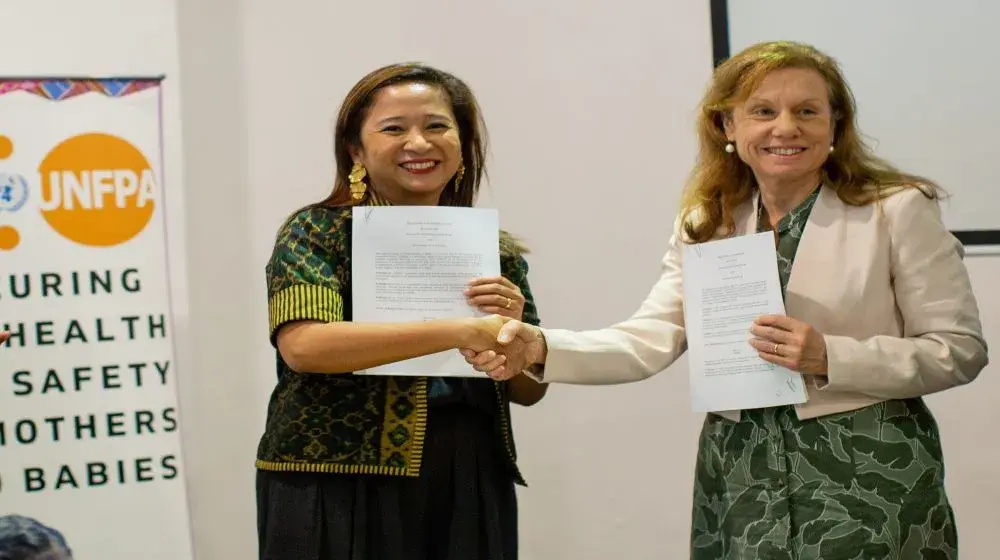Since 2012, the United Nations marks 11 October as the "International Day of the Girl Child." The day promotes girls' human rights, highlights gender inequalities that remain between girls and boys and addresses the various forms of discrimination and abuse suffered by girls around the world.
There are 1.1 billion girls today, a powerful constituency for shaping a sustainable word that's better for everyone. In Timor-Leste there are 142,600 girls 10 to 19 years of age, accounting for one quarter of all women and girls and 12% of the total population. They are brimming with talent and creativity. But their dreams and potential are often thwarted by discrimination, violence and lack of equal opportunities. There are glaring data and knowledge about the specific needs and challenges that girls face.
This year's International Day of the Girl Child theme, "Girls' Progress = Goals' Progress: A Global Data Movement", recognizes that what counts for girls is to be counted. Data that can make the lives of every girl, in every setting, visible and accessible are essential to sustained progress. With access to this type of data and information, policymakers, communities, civil society organizations, youth-led groups, activists and girls themselves can shape policies and initiatives that positively affect the lives of millions of girls around the world.
Investing in adolescent girls allows them to stay in school, gain skills, marry later, have fewer and healthier children, and earn a larger income to invest back into their families and communities. These investments must be driven and informed by high-quality data for maximum impact and results, and to track progress. This is particularly important for identifying and tackling the needs of the most marginalized girls - those about whom we often know the least.
Every girl has the right to a safe and successful transition into adulthood and the right to embrace the opportunities that the future holds for her. Now is the time to fully exploit the power of data as one of the most critical tools for development and for protecting and promoting adolescent girls' rights.
The new State of World Population report, to be launched by UNFPA, the United Nations Population Fund, later this month, examines how the support we provide to adolescent girls today will determine our collective well-being tomorrow.
We at UNFPA are committed to supporting adolescent girls to reach their full potential and determine their own destinies. Every girl counts.
Tetum Version
Involve Labarik Feto sira iha Era Objetivu Dezenvolvimentu Sustentavel
Dezde tinan 2012, Nasoens Unidas Hili loron 11 Outubru hanesan "Loron Internasional ba Labarik Feto." Loron ne'e promove direitus labarik feto sira nian, fo emfaze ba dizigualidade jeneru nebe sei iha entre labarik feto no mane sira no responde mos ba formas diskriminasaun oi-oin no abuzu nebe sofre husi labarik feto sira iha mundu.
Iha loron iha labarik feto hamutuk bilaun 1.1, populasaun nebe forsa tebes atu kria mundu ida nebe diak liu tan iha futuru ba ema idak-idak. Iha Timor-Leste, hamutuk labarik feto 142,600 idade 10 to'o 19, kuaze um tersu husi numeru feto no labarik feto sira. Sira iha talentu no kreatividade. Maibe sira nia mehi no potensialidade dalabarak la atinji tamba diskriminasuan, violensia no menus oportunidade nebe hanesan. Iha dadus no kunhesimentu kona-ba nesesidade no obstaklus nebe labarik feto sira sei infrenta hela.
Tema ba loron Internasional ba Labarik Feto ba tinan ida nee maka, "Progresu Labarik feto sira nian = Progresu Global: Movimentu Dadus Global, rekunhese katak saida maka labarik feto presiza presiza involve no hola parte mos. Dadus nebe maka bele halo ba kada labarik feto sira nia moris, iha kualker situasaun, bele hare no asesu importante tebes atu sustenta progresu. Asesu ba tipu dadus no informasaun hirak nee, ema nebe halo desijaun, komunidade sira, organizasaun sosiadade sivil sira, grupu juventude sira, ativista no labarik feto sira rasik bele ajuda haforsa politika sira no inisiativa sira nebe afeitva pozitivu ba moris labarik feto sira tokon iha mundu.
Investe ba labarik feto sira, hanesan Susmita, fo sira atu kontinua eskola, hetan abilidade sira, kaben depois no iha oan nebe ho numeru natoon no saudavel, no hetan vensimentu atu investa fali ba sira nia familia no komunidade. Investimentu hirak nee presiza hetan no informadu liuhusi dadus nebe ho kualidade aas ba impaktu no rezultadu nebe maximu no atu avalia progresu. Ida nee importante tebes ba identifikasaun no responde ba nesesidade sira ba labarik feto nebe marjinalizadu tebes. - hirak nebe maka ita dalabarak ladun konta.
Kada labarik feto ida iha direitu ba tranzisaun ida nebe seguru no susesu ba periodu adolesente no direitu atu iha oportunidade ba futuru iha sira nia liman. Agora tempu atu explora forsa husi dadus hanesan instumentu ida nebe kritiku tebes ba dezenvolviemntu no ba protesaun no promosaun direitus ba labarik feto sira nian.
Relatoriu foun husi Estadu Populasaun Mundial, nebe sei lansa husi UNFPA, Fundus Nasoens Unidas ba Populasaun, depois fulan ida nee, ezamina kona-ba oinsa suporta hirak nebe ita fo ba labarik feto sira ohin loron sei determina ita nia asaun kolektivu ba bem-estar aban-bainrua nian.
Ami iha UNFPA iha kumprimisu atu suporta labarik feto sira atu atinji sira nia potensialidade ho maximu no determina sira nia distinu rasik. Kada labarik feto sira hola parte mos.




